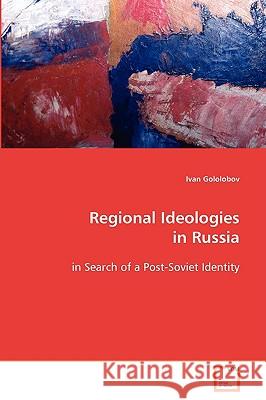Regional Ideologies in Russia » książka
Regional Ideologies in Russia
ISBN-13: 9783639090369 / Angielski / Miękka / 2008 / 236 str.
This book dwells into the construction of new regional identities in post-Soviet Russia. Brought into being by a particular ideological practice, they constitute a particular response to the situation of social dis-identification generated by the dissolution of the USSR and the disappearance of the community of the Soviet people . The study focuses on two such concrete solutions, namely the ideological projects of the Kubanian Governor Nikolay Kondratenko and of the Moscow Mayor Yuriy Luzhkov. Drawing on the new theories of discourse, the research examines articulations of particular ideas of Moscow and Kuban, fixing the identities of 'Muscovites' and 'Kubanians' in the political discourse of the 1990s. The book investigates the new regionalities with relations to the legal and administrative privileging of the subject of the regional population. The study also looks into the hegemonic potential of the regional ideologies, their relevance to a wider programmes of social identification, and their subsequent history."
This book dwells into the construction of new regional identities in post-Soviet Russia. Brought into being by a particular ideological practice, they constitute a particular response to the situation of social dis-identification generated by the dissolution of the USSR and the disappearance of the community of the ‘Soviet people’. The study focuses on two such concrete ‘solutions’, namely the ideological projects of the Kubanian Governor Nikolay Kondratenko and of the Moscow Mayor Yuriy Luzhkov. Drawing on the ‘new theories of discourse’, the research examines articulations of particular ideas of ‘Moscow’ and ‘Kuban’’, fixing the identities of Muscovites and Kubanians in the political discourse of the 1990s. The book investigates the new ‘regionalities’ with relations to the legal and administrative privileging of the ‘subject’ of the regional population. The study also looks into the hegemonic potential of the regional ideologies, their relevance to a wider programmes of social identification, and their subsequent history.











